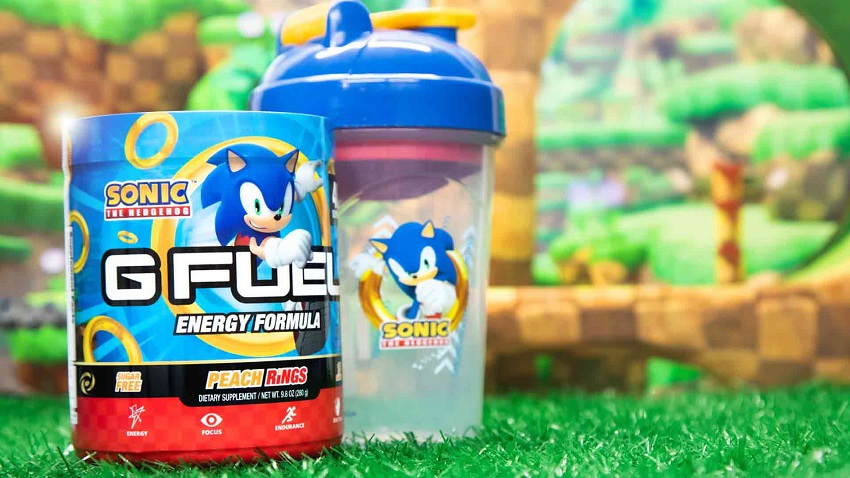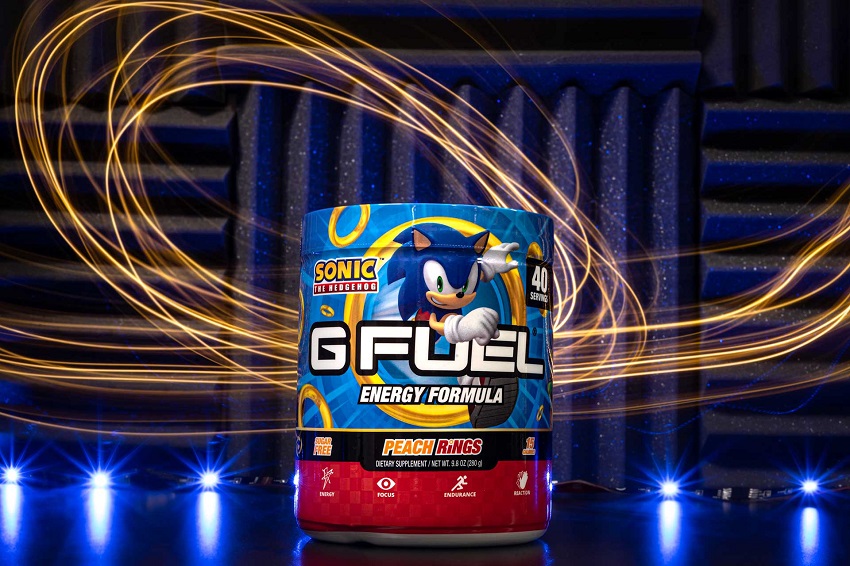In recent years, energy drinks have gained significant popularity among people of all age groups, including children and teenagers. Sonic G Fuel is one such energy drink that has become quite popular among youth. However, many parents have concerns about whether Sonic G Fuel is safe for their kids to consume. In this article, we will delve into the topic and provide you with an informed perspective on the safety of Sonic G Fuel for kids.
What is Sonic G Fuel?
Sonic G Fuel is an energy drink with a blend of ingredients designed to boost energy. It typically contains caffeine, vitamins, and other energy-enhancing substances. The drink is marketed as a performance-enhancing beverage, often associated with increased focus, energy, and alertness. Explore is gfuel for kids.
Ingredients in Sonic G Fuel
The ingredients found in Sonic G Fuel can vary depending on the specific flavor and formulation. However, some common ingredients include:
- Caffeine: Caffeine is a central nervous system stimulant known for its ability to increase alertness and reduce fatigue.
- Taurine: Taurine is an amino acid that may have a role in regulating energy levels.
- B-vitamins: B-vitamins are essential for energy production in the body.
- Antioxidants: Some Sonic G Fuel flavors contain antioxidants, such as vitamin C and E.
- Flavorings and artificial sweeteners: Sonic G Fuel includes various flavorings and artificial sweeteners to enhance the taste.
The Effect of Caffeine on Children
Caffeine is the primary ingredient in Sonic G Fuel and many other energy drinks. While moderate caffeine consumption is generally considered safe for adults, its effects on children can be more significant. Children may be more sensitive to the stimulating effects of caffeine, leading to increased heart rate, jitteriness, and difficulty sleeping.
It is important to note that excessive caffeine consumption can have adverse effects on children’s health. It may disrupt their sleep patterns, affect their attention span and concentration, and even increase their anxiety levels. Therefore, it is crucial to monitor and limit caffeine intake in children.
Sugar Content in Sonic G Fuel
Sonic G Fuel is available in sugar-free varieties containing artificial sweeteners instead of sugar. These sugar-free options can be a better choice for kids who are already consuming an adequate amount of sugar in their diet. However, it is essential to note that excessive consumption of artificial sweeteners may have its own set of health concerns.
On the other hand, some flavors of Sonic G Fuel do contain sugar. Excessive sugar consumption can contribute to weight gain, dental issues, and an increased risk of chronic diseases. Parents should be mindful of the sugar content and encourage moderation when allowing their children to consume energy drinks.
Artificial Sweeteners in Sonic G Fuel
Artificial sweeteners are commonly used in sugar-free energy drinks as a substitute for sugar. While they provide the desired sweetness without the added calories, their long-term effects on children are still being studied. Some concerns about potential adverse effects have been raised, including disruptions to gut health and metabolic processes.
As a parent, it is essential to be aware of the ingredients in energy drinks and make informed decisions regarding their consumption by your children. Moderation is key, and encouraging a well-balanced diet should be a priority.
Potential Health Risks
Energy drinks like Sonic G Fuel have been associated with potential health risks, particularly when consumed excessively or by individuals with certain underlying health conditions. Some potential risks include:
- Increased heart rate and blood pressure: The stimulant effects of caffeine can elevate heart rate and blood pressure, which can be especially concerning for children with cardiovascular issues.
- Dehydration: Energy drinks can have a diuretic effect, increasing urine production and potentially contributing to dehydration.
- Interference with sleep patterns: Caffeine consumption, especially in the evening, can disrupt sleep patterns and result in insufficient rest for children.
- Nutritional deficiencies: Relying on energy drinks for a quick energy boost may lead to a decreased intake of nutrient-rich foods, potentially causing nutritional imbalances.
- Adverse interactions with medications: Certain medications may interact negatively with the ingredients present in energy drinks, leading to undesirable effects.
Age Restrictions and Recommendations
Many health experts and regulatory bodies, including the American Academy of Pediatrics, recommend that children and adolescents avoid consuming energy drinks altogether. Children’s developing bodies are more susceptible to the effects of caffeine and other stimulants present in energy drinks.
In some countries, there are age restrictions in place for the purchase and consumption of energy drinks. Parents should familiarize themselves with local regulations and make informed decisions based on their child’s age and individual circumstances.
Alternatives to Sonic G Fuel
If you’re concerned about the safety of Sonic G Fuel for your kids, there are alternative ways to promote energy and focus without resorting to energy drinks. Consider the following options:
- Balanced nutrition: Encourage a well-balanced diet that includes whole grains, lean proteins, fruits, and vegetables. These foods provide sustained energy and essential nutrients for overall health.
- Sufficient hydration: Dehydration can contribute to feelings of fatigue. Ensure your child drinks enough water throughout the day to stay hydrated.
- Physical activity: Regular exercise can boost energy levels and improve focus naturally. Encourage your child to engage in age-appropriate physical activities.
- Scheduling breaks: Encourage short breaks during homework or screen time sessions to prevent mental fatigue.
- Healthy sleep habits: Ensure your child gets adequate sleep for their age. A good night’s sleep promotes alertness and overall well-being.
Balancing Energy and Nutrition
It is crucial to balance providing energy for your child and promoting their overall health and well-being. While energy drinks may offer a quick fix, they should not replace the foundation of a healthy lifestyle, which includes proper nutrition, hydration, and sufficient rest.
The Importance of Hydration
Hydration plays a significant role in maintaining optimal energy levels. Encourage your child to drink water throughout the day, especially during physical activity or exposure to warm weather. Hydrating adequately helps prevent fatigue and supports overall health.
Educating Children About Energy Drinks
Teaching children about energy drinks’ potential risks and consequences is essential. Engage them in conversations about healthy choices, caffeine’s effects, and moderation’s importance. By empowering them with knowledge, they can make informed decisions regarding their own health.
Tips for Parents
As a parent, you guide your child’s choices and promote their well-being. Here are some tips to keep in mind:
- Lead by example: Set a positive example by making healthy choices yourself. Children are more likely to adopt healthy habits when their parents practice them.
- Communication: Engage in open and honest conversations about energy drinks and their potential effects. Encourage questions and provide accurate information.
- Monitor intake: Monitor what your child consumes, including beverages and snacks. Be aware of their caffeine and sugar intake from all sources.
- Set boundaries: Establish clear guidelines regarding energy drinks and reinforce the importance of moderation.
- Encourage alternatives: Promote healthy alternatives, such as water, herbal teas, or natural fruit juices, as the primary sources of hydration and energy.
Conclusion
While Sonic G Fuel and other energy drinks may seem appealing, it is crucial to approach their consumption cautiously, especially for children. The potential risks associated with excessive caffeine and sugar intake and the lack of regulation make it essential for parents to prioritize their child’s health and well-being.
Promoting a balanced diet, hydration, regular physical activity, and healthy sleep habits should be the foundation for sustaining energy levels in children. Parents can empower their children to make informed choices that contribute to their overall health and vitality by fostering a supportive environment and providing the necessary education.
FAQs
- Can children experience caffeine withdrawal symptoms if they consume energy drinks regularly?
Children who consume energy drinks regularly may experience caffeine withdrawal symptoms if they abruptly reduce or stop their consumption. These symptoms can include headaches, fatigue, irritability, and difficulty concentrating. It is important to reduce caffeine intake to minimize withdrawal effects gradually.
- Are there any energy drinks specifically designed for children?
While some companies have marketed energy drinks specifically targeting children, it is crucial to approach such products skeptically. The potential risks associated with energy drinks apply to children as well. Focusing on providing children with a well-balanced diet and healthy lifestyle habits is recommended rather than relying on energy drinks.
- How can I talk to my child about the potential risks of energy drinks?
Approach the conversation with an open and non-judgmental attitude. Use age-appropriate language and explain the potential effects of caffeine on their body, such as increased heart rate and difficulty sleeping. Emphasize the importance of making healthy choices and provide alternative options for sustaining energy levels, such as nutritious foods and physical activity.
- Can I mix energy drinks with other beverages for my child to reduce their caffeine intake?
Mixing energy drinks with other beverages may dilute caffeine, but it is not a recommended solution. Energy drinks contain various other stimulants and ingredients that may still adversely affect children. It is best to avoid energy drinks altogether and focus on healthier alternatives.
- How can I help my child understand the importance of moderation in consuming energy drinks?
Education and open communication are key. Discuss the potential risks associated with excessive consumption, such as disrupted sleep patterns and negative effects on health. Encourage your child to be mindful of their overall beverage and snack choices and help them find alternative ways to maintain their energy levels without relying on energy drinks.


